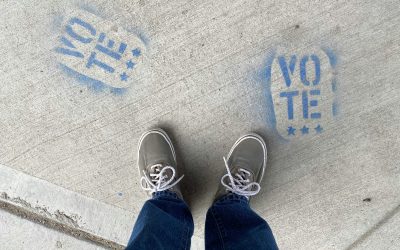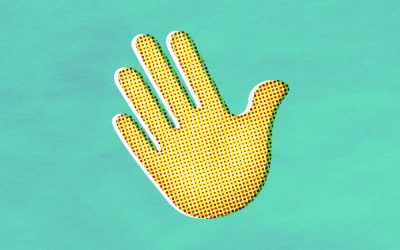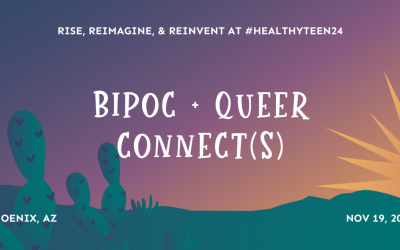

By Nicholas Sufrinko
August 11, 2022
Information that’s as incomplete as it is inaccurate. Guidance that’s days (or weeks) outdated. Musings caked in thick layers of judgment. For far too many of my latest interactions with healthcare professionals, these descriptions fit all too snugly. And in one of the queerest ZIP codes in America, no less.
I’m not alone. As friend after friend, acquaintance after acquaintance develop symptoms associated with this “new” public health emergency, we grow frustrated and bewildered at the quality of the communication conveyed to us (or better put, at us). “Is it ineptitude or is it homophobia?” we wonder.
One group chat made for fun was recast as a de facto “Monkeypox Support Group,” and others were newly created too—fraternal refuges for those scared and in pain.
The truth is, I’m lucky to have such a savvy and supportive network of queer friends. Over the past days and weeks, we’ve called and texted each other with messages of support, suggestions, and strategy. We’ve helped each other navigate one systematic failure after another: First vaccines, then testing, and now treatment. One group chat made for fun was recast as a de facto “Monkeypox Support Group,” and others were newly created too—fraternal refuges for those scared and in pain. And while so much of the health communication on monkeypox out there is deeply troubling, I’ve learned, through my friends, that there are a lot of (mostly queer) healthcare professionals and content creators committed to providing affirming, sex-positive, complete, and up-to-date information.
Here are a few selections:
Deep Dives
In “Monkeypox is a Queer Emergency,” an episode of the Vox podcast Today Explained, Joe Osmundson, who is queer, reminds listeners about the importance of information that speaks to our lived sexual experiences.
“Fascists are going to hate [expletive]s no matter what we say about ourselves [in health messaging]…. We do harm to our personhoods if we do not speak in a sex-positive way, in an honest way, about risks…”
John Oliver in HBO’s Last Week Tonight puts this latest flavor of sexual health information in its crucial context, noting “The queer community may be understandably reluctant to hear some straight person lecturing them about their sex lives, especially when that advice historically has so often come with an air of disapproval about it.”
Hear, hear.
Queer Journalism
To whom, then, might we turn for practical and sex-positive information? In POZ, Nicholas Diamond, Joe Osmundson, and Grant Roth outline Six Ways We Can Have Safer Sex in the Time of Monkeypox. This includes temporary (and thus, perhaps for many, also realistic and attainable) changes in behavior. They write, “Girls, we hate to say it, but it might be time to hang up the group sex and saunas until we all get shots one and two of the vaccine. This is temporary and out of a love for group sex and those who enjoy it.”
Why can’t more of our messaging get this framing right?
Social Media
Social platforms often get a bad rap among those who cite the platforms’ propensity to spread misinformation. But my experience over the last days and weeks suggests it’s institutional actors that are spreading misinformation too. And when the system fails and fails again, it’s social platforms like TikTok, Instagram, and the like—not institutions—where communities find relatable and reliable information.
For the relatable, consider Gay Science creator Rob Anderson’s comic and very NSFW take on the line of questioning accompanying the vaccine rollout. For the reliable, consider Dr. Carlton on Instagram and TikTok. The self-proclaimed “butt stuff doc” has videos on all things monkeypox, including vaccines, testing, and treatment.
Shared Docs
Most surprising to me though, was the usefulness of a few underground Google Docs my friends circulated (but did not create). These sources helped me get treatment when I was at first denied, equipping me with the words to use and CDC guidelines to point to. They also include some of the most comprehensive suggestions on pain management I’ve seen.
For better or worse, the existence of these lo-fi, zine-like docs points to yet another era of guerilla public health communication. Reach out if you can benefit from them.
Toward Healing
By the time this is published, I hope my friends and I will be on our ways toward healing.
I hope that public health, with all our clunkiness and cumber, might finally look at social media’s agility as a feature, not a flaw.
I hope public health institutions will begin to grapple with all of our collective failures in containing and communicating this outbreak. Moreover, I hope that public health, with all our clunkiness and cumber, might finally look at social media’s agility as a feature, not a flaw. And I hope we’ll bear and boost even more affirming, sex-positive, complete, and up-to-date messaging—the kind that speaks to our real, lived, queer sexual experiences.
To borrow a piece of overused jargon, I don’t know what it will take to finally “disrupt” public health. After three years of a pandemic (and now pandemics), I don’t know when we’ll move toward a collective healing that the public—all of it, queer and straight—deserves. When that time comes, I’ll be here to lend a hand and cheer change on.
Until then, I have my friends.
PHOTO CREDIT: Christian Ladewig on Unsplash
Nicholas Sufrinko is a Creative Direction and Product Design Manager at Healthy Teen Network and is the brand and creative lead behind many of our projects. You can often find him hiking, biking, or stargazing. Read more about Nick.












